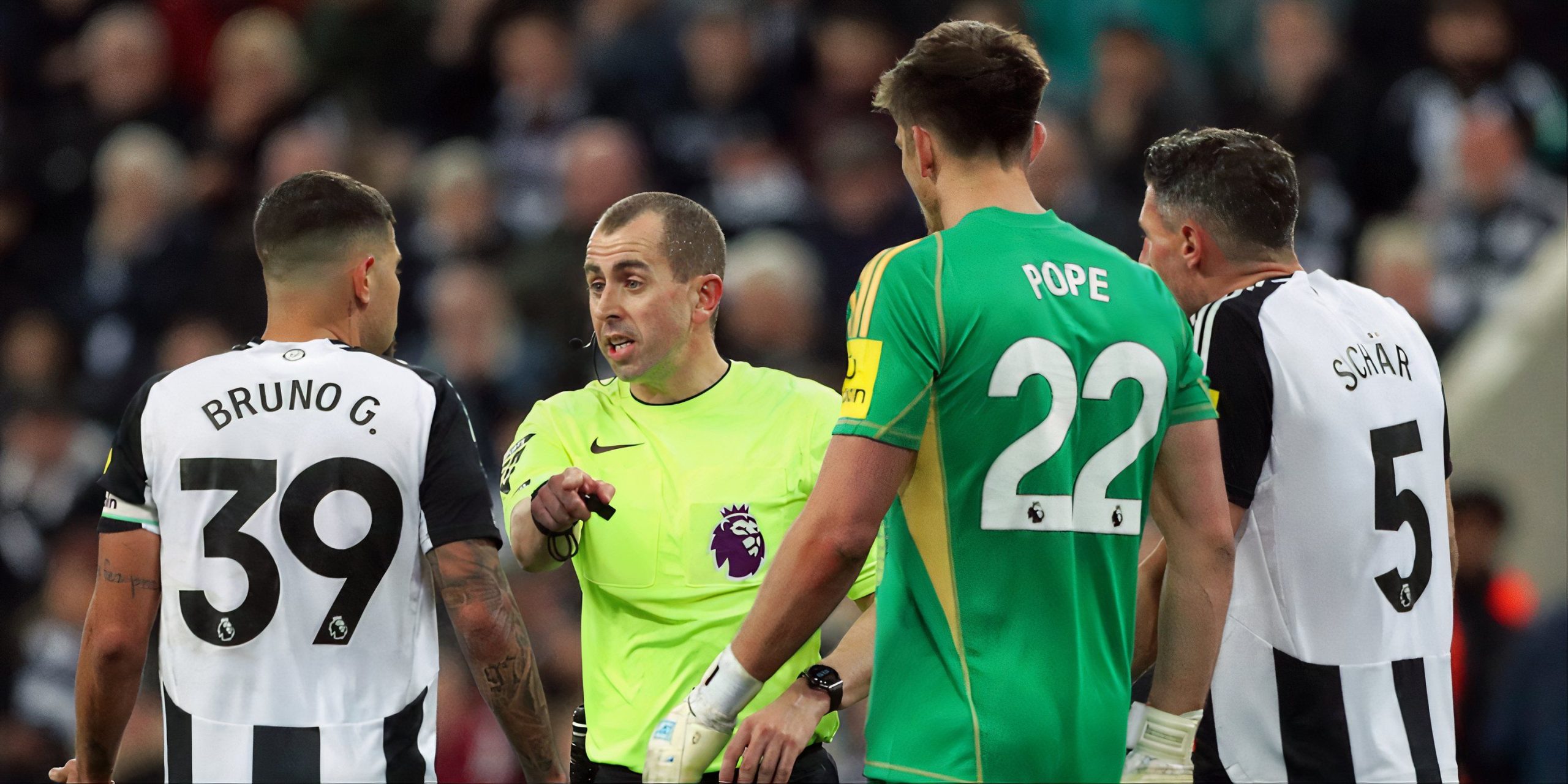For all the scrutiny on Newcastle United’s inconsistent attack, their defensive organisation has been the team’s saving grace.
Eddie Howe’s side may not have been firing at the other end, but their solidity at the back has provided a foundation to build from.
Heading into their meeting with Arsenal, Newcastle had conceded the lowest expected goals against (xGA) in the Premier League at just 2.5. Compare that with their efforts in offence and the difference is stark.
Burnley
4.5
Aston Villa
5.0
West Ham
5.0
Newcastle United
5.2
Wolves
5.6
That xGA record slipped slightly after the defeat to Mikel Arteta’s side, but they still sit second in that particular metric – underlining the strength of their structure without the ball.
Across their opening fixtures, the Magpies have conceded only five goals, keeping four clean sheets. Only Liverpool and Arsenal have managed to score against them in the league play.
A big part of that early-season resilience has been the work of Tino Livramento, who added balance with his pace and anticipation on the flank.
His injury against Arsenal, which looked serious, could prove damaging to Howe’s plans.
Yet it also highlighted the broader point: Newcastle are in the process of rejuvenating their defensive line.
The partnership of Dan Burn and Fabian Schär has been a reliable one, but with Champions League football and a congested schedule, rotation is no longer optional.
Howe has made it clear that everyone must be ready to slot in seamlessly and that process is beginning to accelerate as one fantastic servant edges towards the twilight of his career.
How Fabian Schär became Newcastle's defensive heartbeat
When Newcastle signed Schär from Deportivo La Coruña in 2018 for just £3m, few predicted he would go on to become one of the club’s most consistent performers of the modern era.
Now into his sixth season, the 33-year-old has amassed 235 appearances, scoring 21 goals and contributing 10 assists – remarkable numbers for a centre-half and a reminder of his set-piece threat.
What sets Schär apart is his technical ability.
Described as a “true legend of the club” by one Newcastle content creator earlier this year, he is most notably comfortable receiving the ball under pressure. The Swiss defender can step out of the backline, carry into midfield, and fire incisive passes through the lines.
Under Howe, that skill has been essential in moving Newcastle away from being a purely reactive side to one that can build attacks from deep.
Chalkboard
He also brings invaluable experience. With 86 international caps for Switzerland before his retirement last year, Schär has featured at World Cups and European Championships, developing into a leader by example rather than volume.
Supporters regard him as one of the best value-for-money signings in the club’s history.
Yet even leaders decline. At 33, Schär has become more vulnerable to injuries, missing recent fixtures due to concussion protocols after a heavy knock against Barcelona in the Champions League.
Subtle lapses – slower reactions to second balls, occasional mistimed challenges – have also crept in.
While his passing remains assured, there is a growing sense that Newcastle must prepare for a future where he is no longer the constant at the heart of their back four.
Newcastle's future leader ready to replace Schar
If Schär represents the present, new signing Malick Thiaw may well be the future.
Signed from AC Milan in the summer for £30m, the Germany international arrived with a reputation as one of Europe’s most technically capable young centre-backs.
At 24 years old, he already had 85 senior appearances for Milan and experience in the Champions League – proof that he can handle high-pressure environments.
Thiaw’s qualities are exactly what Howe seeks in a modern defender.
He is calm in possession, able to turn away from pressure, and plays progressive passes that cut through midfield lines.
Matches Played
22
Tackles
24
Blocks
14
Interceptions
15
Aerial Duels Won
49
His statistical profile backs this up: with a 93.2% pass completion rate, ranking him in the 95th percentile among his positional peers across Europe, he rarely concedes possession cheaply.
He also averages nearly five progressive passes per 90 minutes, placing him in the 85th percentile – evidence of his willingness to play forward rather than sideways.
His performance against Arsenal offered a glimpse of his potential. Thiaw won four of six aerial duels, cleared the ball eight times, and crucially, was not dribbled past once.
In possession, he completed 20 of his 23 passes, showing the kind of poise that makes him such a natural fit for Howe’s tactical approach.
Defensively, he read danger well, stepping out to intercept once and shepherding Arsenal’s attackers away from goal with his positioning.
Stylistically, Thiaw has drawn comparisons with Ibrahima Konaté and Micky van de Ven – defenders who blend physical dominance with technical assurance.
Newcastle fans already see the potential for Thiaw to form a long-term partnership with Sven Botman, one that could anchor the club’s backline for the next five years.
Of course, the summer arrival still needs to adapt fully to the pace and intensity of the Premier League, but the early signs are encouraging.
With Champions League fixtures demanding rotation, Howe may soon face a decision that seemed unthinkable only a year ago.
Phasing out one of the club’s most reliable veterans in favour of a player who looks ready to lead Newcastle’s defence into a new era.







